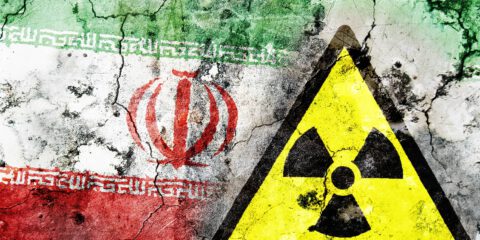The material and political support of the United States is an essential pillar in the national security of Israel.
The material and political support of the United States is an essential pillar in the national security of Israel. The common wisdom is that the special relationship between the two countries stands on three legs:
- the commonality of values
- the influence of Israel’s friends in the American political system
- Israel’s strategic value for American national interests.
The first two elements should not be underestimated. However, the change in the attitude of American administrations toward Israel was mainly the result of the change in seeing Israel as a strategic asset. The turning point occurred after Israel’s victory in the Six-Day War (1967) over Soviet clients.
Since Israel was important to the US during the Cold War with the USSR, it received preferential treatment. The shared values and the support of American public opinion, which had existed even before 1967, facilitated the work of the pro-Israel lobby. However, the strategic consideration was decisive in building a complex structure of cooperation between the two states. After Israel illustrated its strategic value during the Jordan crisis in 1970, cooperation grew closer.
In the aftermath of the end of the Cold War and the disintegration of the Soviet Union, a new international reality emerged in which it was not clear whether the alliance between the US and Israel would continue in the format created in the Cold War. Yet, a new enemy threatened the US: radical Islam that despises American hegemony and resorts to terrorism against the US and the West.
Israel has become a sought-after ally
In the new reality, Israel has become a sought-after ally because of its experience in anti-terrorist activity, its familiarity with the Arab and Muslim world, and intelligence-gathering capabilities in many parts of the Muslim world.
However, the military interventions in Afghanistan and Iraq sapped the willingness of the US to lead the effort in the campaign against radical Islam. In addition, after the fall of ISIS in Syria and Iraq, the magnitude of this threat waned, and the bulk of the fighting against it was handed over to local forces. Neither Iran’s aggressive policies in the Middle East nor its nuclear program threat are perceived as a significant security challenge for the US, in contrast to Israel.
Furthermore, the Middle East has become less important to Washington because of the US becoming an energy exporter and the growing domestic pressures to switch to green energy.
Above all, the US turned its attention to a new strategic challenge: the rise of China’s power. The most prominent feature of the new international system is the competition between the US and China.
The pivot toward Asia
The pivoting toward Asia means Israel seems to have little to offer the US in the new international reality, but this is not the situation. The reduction of the direct presence of the US in the Middle East and the transfer of Israel to the area of responsibility of the United States Central Command (CENTCOM) created a situation in which Israel is portrayed in the eyes of the security and intelligence establishments of the USA and of the pro-Western countries in the region as the strongest, most stable and effective ally in this region.
To a large extent, the Abraham Accords reflect this recognition. The increasingly problematic nature of two US allies – Turkey and, more recently, Saudi Arabia – strengthens Israel’s image as a uniquely loyal ally in the region.
If American allies in the region continue to perceive Iran as a threat, Israel’s strategic value will persist. That assumes that Israel is willing to contribute to stability and even project military power to protect American allies in the region. Jerusalem needs to be positive on this matter.
Under these circumstances, Israel needs to engage in a systematic mapping and design of policies in all areas where Israel can position itself as a valuable partner for the US. Israel’s agencies need to outline a future in which a technological, industrial, intelligence, and even operational partnership will one day replace the existing cooperation and aid arrangements. In any case, it will not be easy to justify financial aid to a nation whose GDP per capita is higher than the European average.
To this end, Jerusalem must identify the areas in which Israel can be helpful to the USA:
*As a significant power factor in the region that maintains important cooperative relations with its immediate neighbors and critical countries in the Gulf and North Africa.
* As an important partner for India, a key country in any strategic (and democratic) architecture that aims to contain China’s rising power on the basis, among other things, of the new I2U2 framework established in 2022, which can be an alternative to the Chinese Belt and Road Initiative (BRI).
* As an essential factor in the armament of other countries in Asia that see China as a major threat to their national interests.
* As a center of innovation ready to make its (impressive) achievements available to the American security establishment.
This move is not without risks, including growing hostility on the part of China. But the affinities evident in the China-Russia-Iran triangle already highlight the common interests of the US, Israel, and some of the region’s countries.
These issues – and others concerning other aspects of Israel’s strategic assets, such as cooperation in other global arenas, Israel’s status in NATO, export of advanced weapons systems to Europe, and more – require an in-depth discussion as soon as possible.
Precisely at the timing of tensions with the US, all branches of the Israeli government that deal with foreign and security issues must consider Israel’s strategic value in the eyes of the US, which will remain very important to Israel’s national security.
A version of this article appeared in The Jerusalem Post on May 1, 2023
JISS Policy Papers are published through the generosity of the Greg Rosshandler Family.
Photo: Freepik










 - בניית אתרים
- בניית אתרים